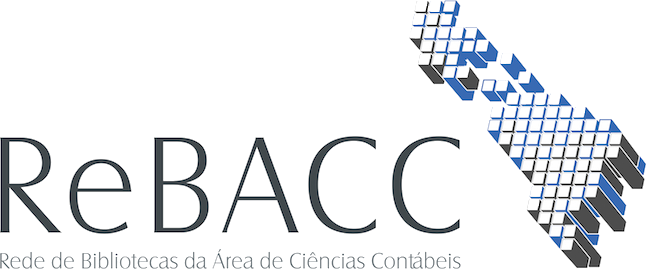Use este identificador para citar ou linkar para este item:
http://rebacc.crcrj.org.br/handle/123456789/1436| metadata.atena.dc.title: | O IMPACTO DO CUSTO DO CAPITAL PRÓPRIO NO PONTO DE EQUILÍBRIO The impact of the cost of equity capital on the break-even point |
| metadata.atena.dc.creator: | June Alisson Westarb Cruz |
| metadata.atena.dc.subject: | Point of balance; Cost of the Proper Capital; Cost of Chance; Variable or Direct Expenditure; Ponto de Equilibro; Custo do Capital Próprio; Custo de Oportunidade; Custeio Variável ou Direto |
| metadata.atena.dc.date.issued: | 2014-11-12 |
| metadata.atena.dc.publisher: | REVISTA DE CONTABILIDADE DO MESTRADO EM CIÊNCIAS CONTÁBEIS DA UERJ |
| metadata.atena.dc.description: | A identificação da realidade das organizações nos possibilita administrar nossas potencialidades e dificuldades. Nesse contexto, o presente estudo propõe considerar o custo do capital próprio, no cálculo do ponto de equilíbrio e na estrutura do custeio variável ou direto, visando observar uma abordagem contábil próxima da realidade da empresa. Contudo, trata-se de um estudo puramente teórico e,
predominantemente, exploratório, que aborda os conceitos e limitações de ponto de equilíbrio, custeio variável e de custo de capital. Pretende-se colaborar na correta observância do título, partindo do princípio que a posse e a propriedade do capital monetário se tornam valorosas e onerosas, devendo seu custo ser considerado um item adicional na consideração dos custos, no confronto com as receitas, no estabelecimento do lucro e de um real ponto de equilíbrio.
Palavras-chave: Ponto de Equilibro; Custo do Capital Próprio; Custo de Oportunidade; Custeio Variável ou Direto.
ABSTRACT
The identification of the reality of the organizations allows us to manage our potentialities and difficulties. In this context the present study considers the cost of proper capital in the calculation of the break-even point and structure of the variable or direct expenditure, aiming at a countable approach close to the reality of the company. However, this regards a purely theoretical and predominantly exploratory study, which approaches the concepts and limitations of the break-even point, variable expenditure and capital cost. It is intended to collaborate in the correct observance of the heading, parting from the principle that the ownership and the property of the monetary capital become valuable and onerous, having to be
considered its cost an additional item in the consideration of the costs in the confrontation with prescriptions in the establishment of the profit and a real break-even point.
Keywords: Point of balance; Cost of the Proper Capital; Cost of Chance; Variable or Direct Expenditure. The identification of the reality of the organizations allows us to manage our potentialities and difficulties. In this context the present study considers the cost of proper capital in the calculation of the break-even point and structure of the variable or direct expenditure, aiming at a countable approach close to the reality of the company. However, this regards a purely theoretical and predominantly exploratory study, which approaches the concepts and limitations of the break-even point, variable expenditure and capital cost. It is intended to collaborate in the correct observance of the heading, parting from the principle that the ownership and the property of the monetary capital become valuable and onerous, having to be considered its cost an additional item in the consideration of the costs in the confrontation with prescriptions in the establishment of the profit and a real break-even point. Keywords: Point of balance; Cost of the Proper Capital; Cost of Chance; Variable or Direct Expenditure |
| metadata.atena.dc.identifier.uri: | http://rebacc.crcrj.org.br/handle/123456789/1436 |
| metadata.atena.dc.identifier: | http://www.atena.org.br/revista/ojs-2.2.3-06/index.php/UERJ/article/view/664 |
| Aparece nas coleções: | Artigos - Atena |
Arquivos associados a este item:
Não existem arquivos associados a este item.
Os itens no repositório estão protegidos por copyright, com todos os direitos reservados, salvo quando é indicado o contrário.

